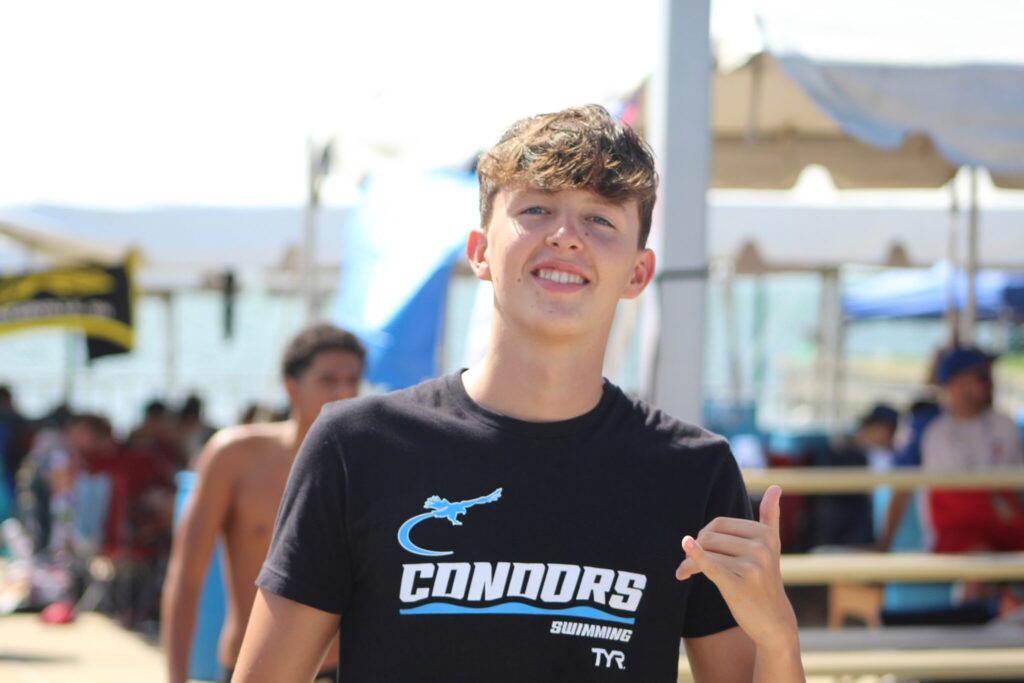What a difference a year can make. For 17-year-old Lucas Porta, the past year has brought many changes. A year ago, Porta was working as a lifeguard at his local pool in Larchmont, NY. Porta, who was not a competitive swimmer, decided to get in for a swim during a break. As Porta describes it, one of his coworkers, who was a competitive swimmer, saw potential in Porta and after teaching Porta technique basics, convinced him to join a club team.
While what initially got Porta interested in swimming was being told that he could be good at it, he says. “However, the more serious I got into the sport, the more my interest shifted into seeing how far I could push myself and how far I could progress in the sport.”
This shift happened quickly and with what was left of the summer, Porta found himself watching as many YouTube videos on technique as he could, something many new swimmers can relate to. Porta and his friend timed a 50-yard freestyle on the first day they swam together, and Porta checked in with a 33-mid. By the end of the summer, he had lowered that time to 26.21.
Then, Porta joined his first club team in September. And he experienced something else that many swimmers can relate to: suffering through practice. “I had gone from never swimming, to swimming around 700 yards a day, to then around 5000 yards a day all within the span of two months,” Porta said. “I couldn’t finish a practice to save my life.”
But he kept showing up. “When I’m alone, it makes it harder to get through the workouts, whereas if I’m training with my team I have a lot of great friends and teammates around me pushing me to get better,” he said.
He kept working. And slowly, the practices got easier—he started finishing them. The results showed at his meets too. He clocked a 24.52 in the 50 freestyle, then he broke 24 seconds for the first time in December 2023. At his championship meet, Porta swam 22.54, dropping eight-tenths of a second.
The process started all over again in the long-course season. Porta had never swum in a 50-meter pool before and he had switched club teams. It was a challenge to finish practices again. But unlike in September, Porta had a foundation to build on. He credits improving his technique as being the thing that most helped him improve his times so quickly throughout the fall and it was still there for him when the long-course season started.
At his long-course championship meet, a year after he first started swimming, Porta swam a 25.14 in the 50-meter freestyle, which roughly converts to a 21.92 in short course yards using the SwimSwam time converter.
A year into his competitive swimming career, Porta isn’t finished yet. The lessons he’s already learned in this short time have helped him set big goals he wants to achieve during this upcoming year, his senior year of high school. But even as he sets himself up to try his best to achieve them, it is important to him to take the time to be proud of all he’s already accomplished. Swimming is a lifelong sport, but that doesn’t mean you have to have done it all your life to succeed—Porta’s experience is even more proof of that.

